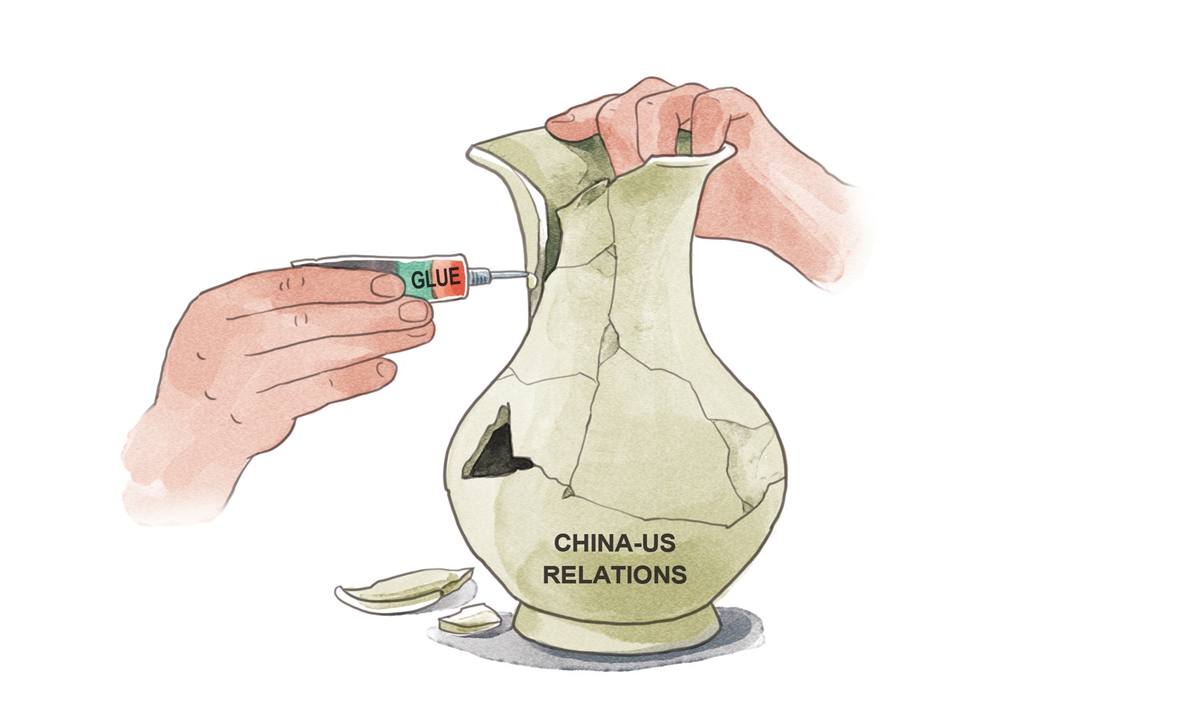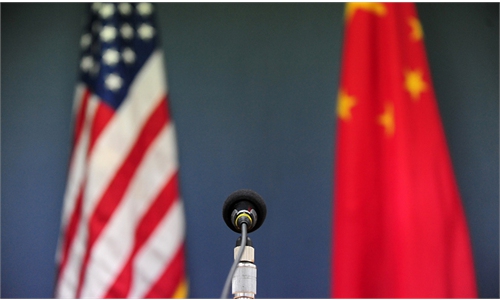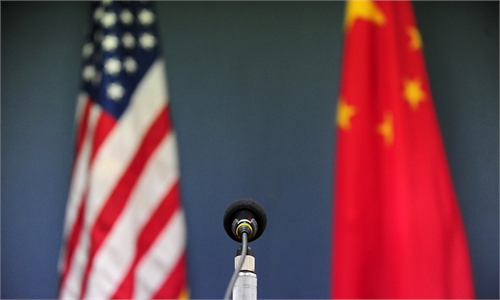Patience needed to fix China-US ties

Illustration: Liu Rui/GT
The China-US relationship is not just about the two governments. It also involves the two peoples and societies. This is what senior Chinese diplomat Yang Jiechi sought to convey with his speech to a US audience on Tuesday morning Beijing time.Yang sent this message via the National Committee on US-China Relations, the host of the event. It was largely aimed to encourage nongovernmental organizations of the two countries to play a more active and constructive role in stabilizing and developing China-US relations.
The most important thing for Biden now is to advance the stimulus package and a series of practices to eradicate Trumpism. Though the China-US relationship is not a top political concern of the Biden administration, it cannot ignore that Trump and his team brought the two countries' relations to the brink of collapse.
Yang's speech conveyed a very important voice of China: The governments, societies and peoples of the two countries must show rationality to meet each other halfway. Having undergone four years of reckless anti-China campaign and a serious countermarch in China-US ties, the two countries should get back onto the track of mutual respect and mutually beneficial cooperation.
Yang made it clear to the US China's stance and concerns on several key issues. He emphasized that the US shall not meddle China's national core interests that lie in affairs such as Taiwan and Xinjiang.
The two countries are engaging in a strategic competition where the US has, out of its own political interests and demands, deliberately obscured the bottom line. The China-US relationship is not simply about where the bottom line is. But the US should be made clearly aware that their ambiguous policies in regards to China's bottom line will only harm China-US relations.
Shortly before Yang delivered his speech, US Secretary of State Antony Blinken said in an interview on Monday that China "poses the most significant challenge" to the US internationally. Blinken also criticized China's lack of transparency in fighting COVID-19.
These were intentional remarks. Whereas the US' China policy is deeply affected by US' internal partisan politics, Blinken will not give an impression to Americans that the Biden administration is making a sharp turn regarding China - or being soft on China.
In fact, the China-US relationship cannot go back to the past. The development of both strategic competition and cooperation will become a pattern of bilateral relations.
Therefore, despite we do not agree with Blinken's words, we don't need to care too much about them. China and the US still lack effective communication mechanisms, and there is still a long way to go to restore their relations. Regardless of the disputes, the two sides must at least meet each other halfway. However, if the Biden administration continues Trump's suppression policy against China, then obviously China will only fight back.
The crux of China-US relations lies in two aspects that explain the tough statements of Blinken and some other Biden cabinet members.
The first aspect is the US' mentality of acting as a boss. The US is used to being the world's dominant leader. It believes that China's rise has happened relatively fast and that China is narrowing the power gap with the US. Thus, Washington has pushed forward the so-called China threat theory, making it a "strategic rival." This is based on the US' mentality of traditional power politics.
The second aspect pertains to the US' internal politics. Current social and political divisions in the US today are the severest since the American Civil War.
Thus, the Biden administration is unwilling to show weakness on China policies. It fears any backlash because the Trump administration's China policy has gained serious support and approval. Under such circumstances, China needs to have political patience. Diplomacy is always the continuation of domestic politics. With US internal conditions like this, it will be hard for the Biden administration to move fast to improve China-US relations.
At present, both China and the US should be patient. The two should maintain strong interactions and gradually improve their relations. After all, it is not in the Biden administration's interest for China-US relations to worsen. There are already signs of change.
As soon as Biden took office, he suspended the "Executive Order on Securing the United States Bulk-Power System" signed by Trump. The executive order banned the importation of foreign bulk-power equipment. This shows that the Biden administration is evaluating its China policy based on the US' complicated domestic political needs. We need to give the Biden administration some time on this.
Preventing China-US relations from deteriorating further is of utmost importance. After four years of the Trump administration, China-US relations have fallen to deplorable lows. The two countries are only one step away from a new cold war. For now, the improvement of their relations might be slow, but at least they have a chance not to deteriorate further. Today's China-US relations need to be responsible for history, humanity, and for world's peace and stability.
The author is a professor of international relations at Nanjing University. opinion@globaltimes.com.cn



